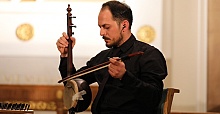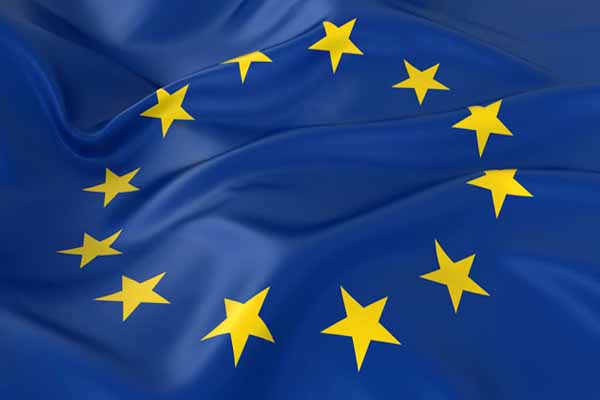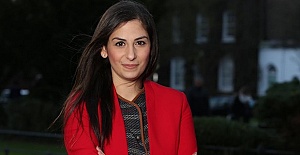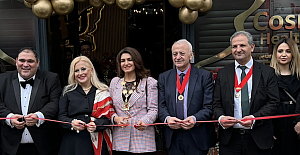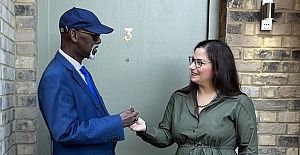EUROPEAN PARLIAMENT
2009 – 2014
B7-0305/2013 } B7-0306/2013 } B7-0307/2013 } B7-0310/2013 } B7-0311/2013 } RC1
Plenary sitting
12.6.2013
RC939893EN.doc
Ria Oomen-Ruijten, Mairead McGuinness, Cristian Dan Preda, Arnaud Danjean, Roberta Angelilli, Eleni Theocharous, Bernd Posselt, Eija-Riitta Korhola, Ivo Belet, Rafał Trzaskowski
on behalf of the PPE Group
Hannes Swoboda, Libor Rouček, Raimon Obiols, Ana Gomes,Richard Howitt, Maria Eleni Koppa, María Muñiz De Urquiza,Emine Bozkurt, Boris Zala, Michael Cashman, Pino Arlacchi,Liisa Jaakonsaari on behalf of the S&D Group
Alexander Graf Lambsdorff, Guy Verhofstadt, Louis Michel,Graham Watson, Marietje Schaake, Johannes Cornelis van Baalen,
PE509.939v01-00 } PE509.940v01-00 } PE509.942v01-00 } PE509.945v01-00 } PE509.946v01-00 } RC1
JOINT MOTION FOR A RESOLUTION
pursuant to Rule 110(2) and (4), of the Rules of Procedure
replacing the motions by the following groups: EFD (B7-0305/2013)
Verts/ALE (B7-0306/2013)
S&D (B7-0307/2013)
ALDE (B7-0310/2013) PPE (B7-0311/2013)
on the situation in Turkey (2013/2664(RSP))
United in diversity
RC939893EN.doc
PE509.939v01-00 } PE509.940v01-00 } PE509.942v01-00 } PE509.945v01-00 } PE509.946v01-00 } RC1
Sarah Ludford, Frédérique Ries, Annemie Neyts-Uyttebroeck, Edward McMillan-Scott, Hannu Takkula, Kristiina Ojuland on behalf of the ALDE Group
Hélène Flautre, Franziska Keller on behalf of the Verts/ALE Group
Niki Tzavela, Fiorello Provera on behalf of the EFD Group
European Parliament resolution on the situation in Turkey (2013/2664(RSP))
The European Parliament,
– having regard to its previous resolutions, in particular that of 18 April 2013 on Turkey’s 2012 progress report1,
– having regard to the Charter of Fundamental Rights of the European Union,
– having regard to the Negotiating Framework for Turkey of 3 October 2005,
– having regard to Council Decision 2008/157/EC of 18 February 2008 on the principles, priorities and conditions contained in the Accession Partnership with the Republic of Turkey2 (‘the Accession Partnership’), as well as to the previous Council decisions on the Accession Partnership of 2001, 2003 and 2006,
– having regard to Rule 110(2) and (4) of its Rules of Procedure,
A. whereas in the early hours of Friday, 31 May 2013 the Turkish police used excessive violence in an effort to disperse a group of demonstrators, who had been protesting for weeks against the planned felling of trees for a new construction project in Istanbul’s Gezi Park in the Taksim Square area;
B. whereastheheavy-handedpoliceinterventionledtoclasheswiththeprotesters,which quickly spread to other cities in Turkey, and whereas these clashes led to four deaths and over a thousand wounded, mass arrests and severe damage to private and public property; whereas tear-gas was used extensively, with canisters being fired directly at protesters, causing serious injuries;
C. whereasthedemonstrationshavegainedsupportamongdifferentstrataofTurkishsociety; whereas men and women participated in equal measure in the demonstrations;
D. whereas the harsh condemnation by the Turkish Government seems to have been counter-productive;
E. whereas Article 34 of the Turkish Constitution guarantees the right to organise peaceful, unarmed meetings and demonstrations without permission; whereas Article 26 guarantees freedom of expression, and Articles 27 and 28 guarantee ‘freedom of expression’ and ‘unhindered dissemination of thought’;
F. whereastheprotestsarealsolinkedtoconcernsinsomesectorsofTurkishsocietyovera series of recent decisions and legislative acts on issues such as restrictions on the sale of alcohol and educational reforms;
G. whereas the protesters are increasingly voicing concerns over a perceived lack of representation of minority voices, authoritarian governance and lack of the rule of law and of good governance, and of fair trial and due process in Turkey;
H. whereas the mainstream Turkish media remained silent regarding the demonstrations, and Twitter users have been arrested;
I. whereas Commissioner Füle and HR/VP Catherine Ashton have reacted to these events;
J. whereas freedom of assembly, freedom of expression (including through social media both online and offline) and freedom of the press are fundamental principles of the EU;
1. Expresses its sincere condolences to the families of the protesters and of the police officer who lost their lives, and wishes the numerous wounded a rapid recovery;
2. Expresses its deep concern at the disproportionate and excessive use of force by the Turkish police in its response to the peaceful and legitimate protests in Istanbul’s Gezi Park, and calls on the Turkish authorities to thoroughly investigate the police violence, to bring those responsible to justice and to offer compensation to the victims; warns the Turkish Government against taking harsh measures against the peaceful protesters, and urges the Prime Minister to take a unifying and conciliatory position so as to avoid any further escalation;
3. Calls on the Turkish authorities to guarantee and respect the rights of all citizens to freedom of expression, peaceful assembly and peaceful protest; calls for the immediate release of all peaceful protestors taken into custody and currently detained; asks for information on the exact numbers of detainees and injured;
4. Deplores the reactions of the Turkish Government and of Prime Minister Erdoğan, whose unwillingness to take steps towards reconciliation, to apologise or to understand the reactions of a segment of the Turkish population have only contributed to further polarisation;
5. Welcomes the moderate response by President Gül and the apologies to the injured protesters expressed by Deputy Prime Minister Arinç, as well as their dialogue with the Taksim platform and political opposition figures to defuse tensions; underlines the importance of dialogue between the Turkish Government and peaceful protesters;
6. Reminds Turkey that in an inclusive, pluralist democracy all citizens should feel represented and that the majority has a responsibility to include the opposition and civil society in the decision-making process; also reminds the opposition parties of their responsibility to do their part to create a democratic political culture with respect for diverse views and opinions;
7. Is concerned about the ongoing confrontation between the political parties, and the lack of readiness on the part of government and opposition to work towards consensus on key reforms; urges all political actors, the government and the opposition to work together to enhance political plurality in state institutions and to promote the modernisation and democratisation of the state and society;
8. Points to the crucial role of a system of checks and balances in the governance of a modern democratic state, which should be reflected in the ongoing constitutional process, and which must be based on the principle of separation of powers, with balance between the executive, legislative and judicial functions, on respect for human rights and fundamental freedoms – in particular freedom of expression and freedom of the press – and on a participatory political culture that truly reflects the plurality of a democratic society; believes that, in itself, the organisation of peaceful and legitimate protests testifies to the vibrancy of Turkish civil society; reminds Turkey of the importance of continuing efforts to further improve its democratic institutions, the rule of law and the observance of fundamental freedoms;
9. Stresses the need for continued intensive training of the police force and the judiciary both in their formal education and during their active careers concerning the implementation of the Istanbul Protocol (a set of international guidelines against torture and ill-treatment) and also on the primacy of individual rights and liberties;
10. Calls on local and national authorities in Turkey to launch public consultations for all urban and regional development plans; recalls the need to balance economic growth with social, environmental, cultural and historical factors; calls for all relevant projects in Turkey to undergo environmental impact assessment, without exception;
11. Observes that the unprecedented wave of protests also reflects growing dissatisfaction in parts of the Turkish population concerning lifestyle regulation; reiterates that in a democratic polity governments must promote tolerance and ensure freedom of religion and belief for all citizens; calls on the government to respect the plurality and richness of Turkish society and to protect secular lifestyles;
12. Recalls that freedom of expression and media pluralism are at the heart of European values and that a truly democratic, free and pluralist society requires true freedom of expression; recalls that freedom of expression is applicable not only to information or ideas that are favourably received or regarded as inoffensive, but also, in accordance with the European Convention on Human Rights, to those that offend, shock or disturb the state or any section of the population;
13. Is concerned about the deterioration in freedom of the press and about certain acts of censorship and growing self-censorship within the Turkish media, including on the internet; calls on the Turkish Government to uphold the principle of press freedom; stresses that an independent press is crucial to a democratic society, and points in this context to the essential role of the judiciary in protecting and enhancing press freedom, thereby guaranteeing public space for free and inclusive debate; is concerned at the large number of journalists in prison and the numerous ongoing trials of journalists; calls for the release of social media activists;
14. Reiterates its concern at the fact that most media are owned by, and concentrated in, large conglomerates with a wide range of business interests; reiterates its call for the adoption of a new media law addressing, inter alia, the issues of independence, ownership and administrative control;
15. Instructs its President to forward this resolution to the Council, the Commission, the High Representative of the Union for Foreign Affairs and Security Policy / Vice-President of the Commission, the Secretary-General of the Council of Europe, the President of the European Court of Human Rights, the governments and parliaments of the Member States and the Government and Parliament of the Republic of Turkey.



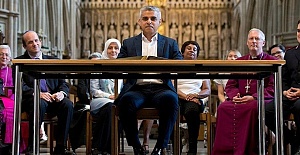 The candidates vying to be the next London mayor
The candidates vying to be the next London mayor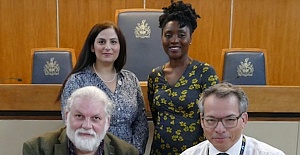 Enfield Council commits to anti-racism and diversity pledge
Enfield Council commits to anti-racism and diversity pledge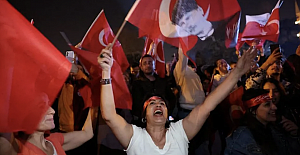 President Erdogan promised supporters his party would learn its lessons from the defeat
President Erdogan promised supporters his party would learn its lessons from the defeat Mayor of London and London Assembly elections
Mayor of London and London Assembly elections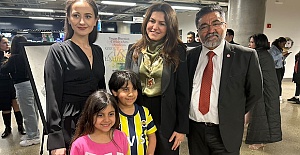 Future Painters Exhibition at Tottenham Hotspur Stadium
Future Painters Exhibition at Tottenham Hotspur Stadium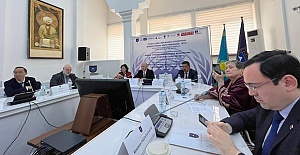 Models of Teaching International Journalism for Sustainable Development
Models of Teaching International Journalism for Sustainable Development UK and US scientists have been working on eclipse observations
UK and US scientists have been working on eclipse observations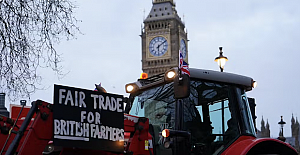 Unsupportive goverment policies jeopardizing foundation of UK food security
Unsupportive goverment policies jeopardizing foundation of UK food security English Premier League leaders Arsenal will visit title contenders
English Premier League leaders Arsenal will visit title contenders Liverpool meet Atalanta and West Ham face Bayer Leverkusen
Liverpool meet Atalanta and West Ham face Bayer Leverkusen Arsenal face Bayern Munich and Manchester City play Real Madrid
Arsenal face Bayern Munich and Manchester City play Real Madrid UK Transfer deadline day, the transfer window closes tonight
UK Transfer deadline day, the transfer window closes tonight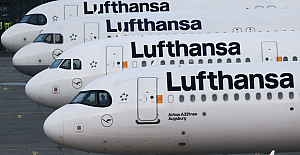 Europe's travel strikes: Flight and train disruption you can expect in April
Europe's travel strikes: Flight and train disruption you can expect in April Enfield Council website achieves digital inclusion recognition
Enfield Council website achieves digital inclusion recognition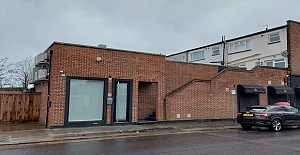 Enfield Council’s Planning Enforcement team goes from strength to strength
Enfield Council’s Planning Enforcement team goes from strength to strength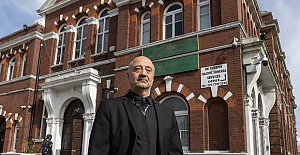 UK's first Turkish Shacklewell Lane Mosque faces threat to its future
UK's first Turkish Shacklewell Lane Mosque faces threat to its future


